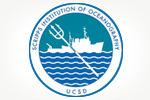Project Profile
Marine Biodiversity - Understanding Threats and Providing Solutions
University of California at San Diego Scripps Institute of Oceanography
Abstract
Our project is no longer accepting students to the Ph.D. program funded by IGERT-NSF however, we do have an affiliated Masters of Advanced Study program and an “Interdisciplinary Program” that both represent the continuation of the project goals originally supported by IGERT. We also have a new IGERT… more »
Our project is no longer accepting students to the Ph.D. program funded by IGERT-NSF however, we do have an affiliated Masters of Advanced Study program and an “Interdisciplinary Program” that both represent the continuation of the project goals originally supported by IGERT. We also have a new IGERT project [“Global Change, Marine Ecosystems and Society”] that will admit students for the 2010 academic year.
Human beings profoundly affect many of the physical and biological processes of the planet, with consequences for the future that are poorly understood. For many years concern focused on the land, but the degradation and vulnerability of marine ecosystems is now apparent. Identifying the magnitude and causes of environmental change is a complex task, but this alone is not enough. The environmental and socioeconomic consequences of alternative policy responses must be evaluated, and this information must be conveyed effectively to policy-makers and the public. In order to accomplish this, we propose an integrated research and training plan designed to answer the following questions for specific marine ecosystems where we have expertise: (1) How have marine ecosystems changed over time and what are the main forces influencing those dynamics? (2) How do marine ecosystems currently function and what services do they provide? (3) What are the policy options available for protecting and restoring marine biodiversity and ecosystem function? (4) What information (biological and socio-economic) is needed by decision-makers and how is it best communicated to them and to the public at large?
To meet this need, we have developed a series of interdisciplinary, team-based, problem-solving experiences to foster analytical and communication skills with a global outlook. Key novel elements of this IGERT program are: an intensive introductory course in the relevant natural and social sciences (1st summer); a year-long, case-studies course Marine Science, Law and Policy in which interdisciplinary teams of students work together on marine-related problems facing society (1st academic year); a summer internship (national or international, governmental or NGO; 2nd summer); assembly of interdisciplinary teams to elaborate and coordinate research strategies for targeted ecosystems (year 2); an Informatics in Biodiversity class and workshops in ethics and communication skills (years 2 & 3); and a dissertation bridging the natural and social sciences that addresses an important marine conservation problem, with advisors from within and outside academia (years 3-5).
Intellectual Merit: The IGERT program will provide greater understanding of marine biodiversity, the threats that it faces, and provide methods to address those threats. Its interdisciplinary structure will facilitate creation of novel links across the natural, social and informatic sciences.
Broader Impact: The primary purpose of the program is to train a new generation of students capable of confronting important societal issues with respect to the health of the world’s oceans. Specific elements include building links outside academia (nationally and internationally), increasing representation of under-represented groups, and communicating the results of investigations outside traditional academic circles.
IGERT is an NSF-wide program intended to meet the challenges of educating U.S. Ph.D. scientists and engineers with the interdisciplinary background, deep knowledge in a chosen discipline, and the technical, professional, and personal skills needed for the career demands of the future. The program is intended to catalyze a cultural change in graduate education by establishing innovative new models for graduate education and training in a fertile environment for collaborative research that transcends traditional disciplinary boundaries. In this sixth year of the program, awards are being made to institutions for programs that collectively span the areas of science and engineering supported by NSF. « less
Contributions[?]
Project members' contributions to the library and showcase are listed here.
See All 40 Contributions »






